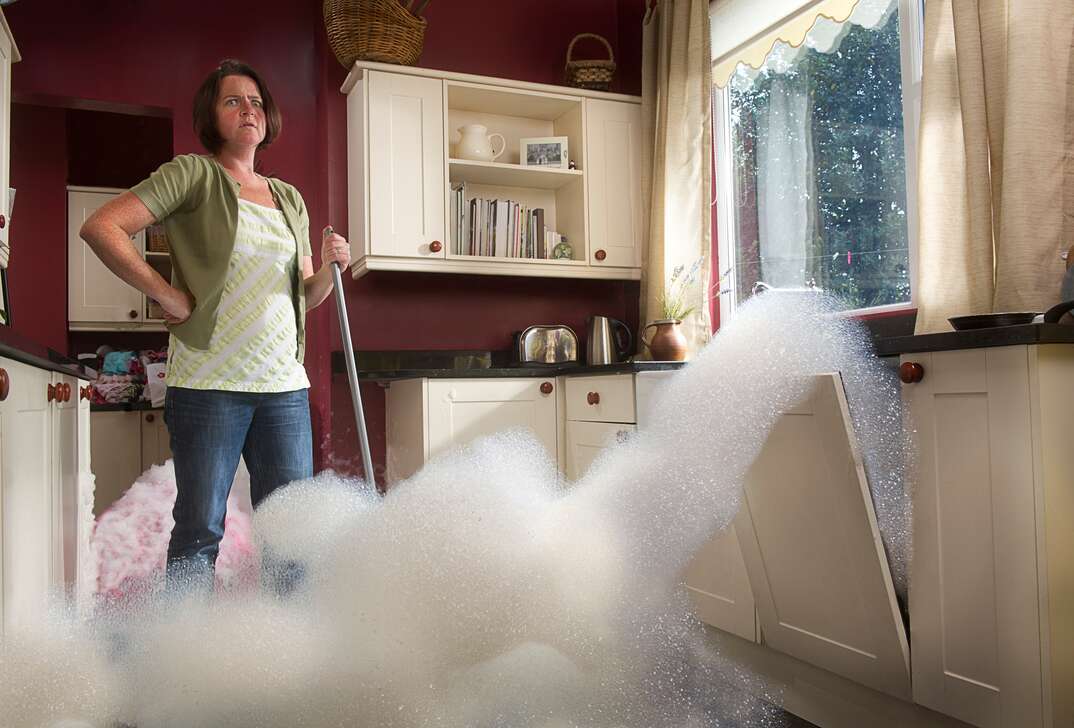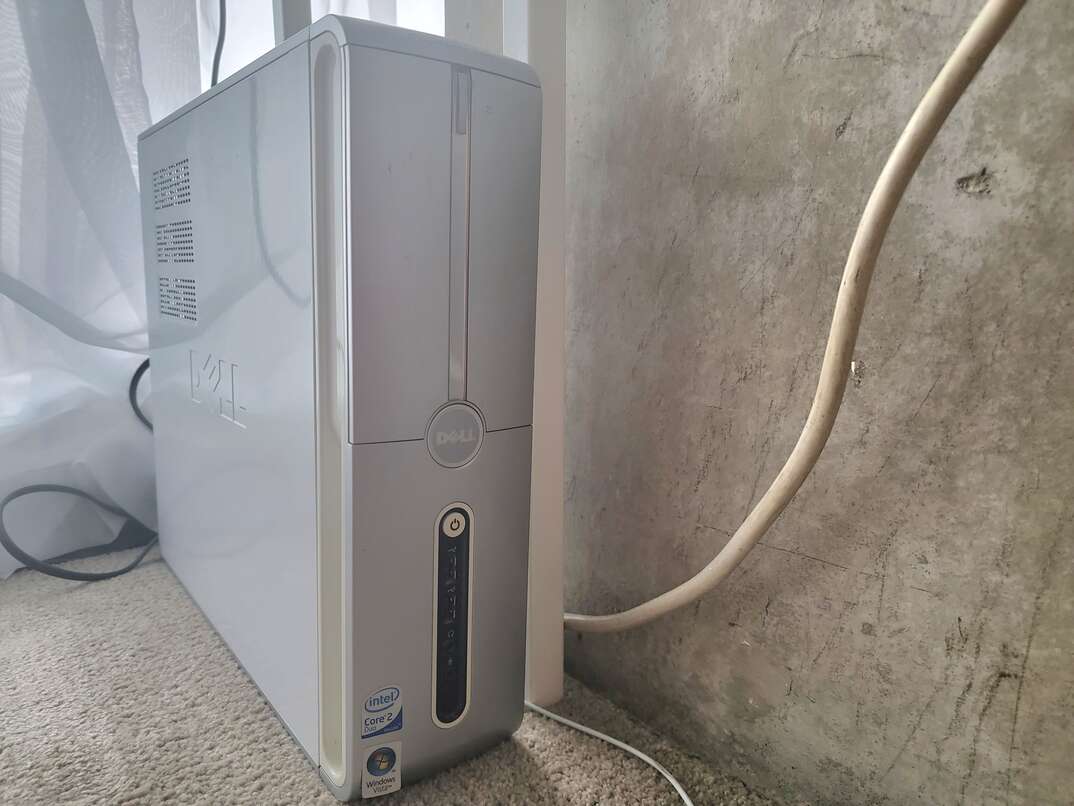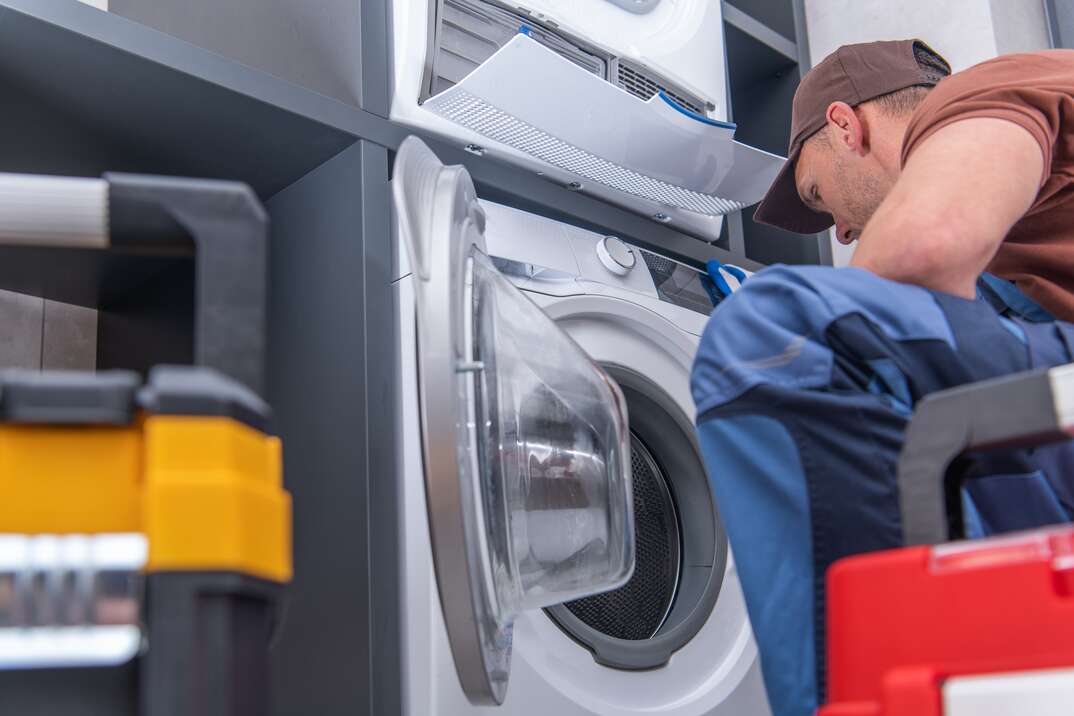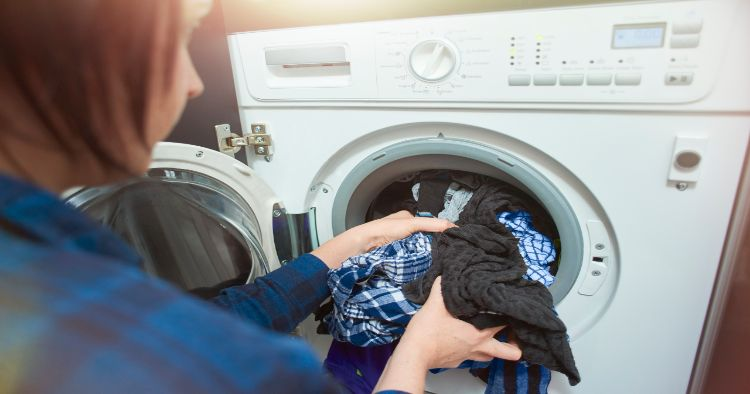My Dishwasher Is Overflowing With Suds ... Help!

Whether you're washing your hands or your dishes, lots of suds seem like a good thing. But you don't want to see lots of suds leaking out of your dishwasher.
This May Also Interest You: Install Your Dishwasher Yourself: A 10-Step Guide
This can cause a huge mess in your kitchen. Here’s what to do if you find your kitchen full of suds and water due to a dishwasher overflow.
Why Is My Dishwasher Overflowing With Suds?
One of the biggest causes of a dishwasher overflowing with lots of suds is using the wrong type of soap. If you use anything other than detergent designed for a dishwasher, it can foam up too much and force the extra suds plus water out of the appliance. For example, liquid dish soap can make for lots of suds.
A dishwasher malfunction can also cause water to back up and overflow from the appliance. When this happens, you might notice suds in the water as well. Possible mechanical problems with the dishwasher include:
- A stuck or broken float assembly that allows the dishwasher to overfill
- A faulty door gasket that lets water leak out
- A damaged water inlet valve that lets water into the appliance when it shouldn't
- Clogging in the drain at the bottom, causing water to back up and leak
How Do I Make It Stop?
If you're faced with a dishwasher overflowing with suds, take these steps to fix the situation:
1. Hit the cancel button on your dishwasher. This should cause the water to drain out of the appliance, so give it enough time to drain before opening the dishwasher.
2. Grab several towels to soak up the water that's already on the floor.
3. Take the dishes out of the dishwasher while you finish cleaning up.
4. Sprinkle salt over the suds left in the dishwasher to get rid of them quickly once the water drains.
5. Rinse out the dishwasher with bowls or buckets of clean water if necessary to get rid of the remaining suds.
6. If the dishwasher overflowed because it's clogged, scoop out the remaining water or soak it up with towels. Then, clear the clog from the drain.
7. Investigate additional causes of the overflow or call an appliance repair company to determine the problem.
8. Repair damaged parts or consider installing a new dishwasher if your model is old.
More Related Articles
- How Much Does a Dishwasher Cost?
- When’s the Last Time You Replaced Your Appliances’ Hoses? Here’s How to Change All of Them
- The Filth Shall Get Them Clean: Why You Don’t Need to Pre-Rinse Your Dishes
- Don’t Get Lost in the Wash: How to Use Your Dishwasher Efficiently
- Should You Repair or Replace Your Dishwasher?
How Do I Prevent This From Happening Again?
Only use detergent made for automatic dishwashers. Never use regular dish soap, liquid hand soap or other types of soaps in your dishwasher. Using dishwasher soap tablets or packets gives you preportioned amounts to avoid using too much soap.
Performing routine maintenance on your dishwasher can keep it in tip-top shape. Do these tasks regularly:
- Replace the hoses
- Clean out the drain
- Check the gasket for rips or other damage
- Replace old parts as soon as you know there is a problem


